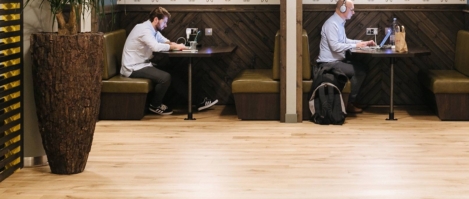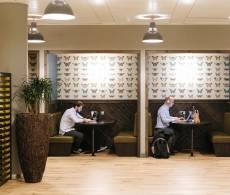December 15, 2015
Agile working is increasingly popular way to reduce London office costs 0
 Rent, rates and service charges for office space in established Greater London office locations such as Croydon, Brentford and Uxbridge are typically over 50 percent lower than the cost of equivalent space in Central London locations such as Victoria, Marylebone, St Paul’s, Liverpool Street and Canary Wharf, Carter Jonas’ latest research claims. Increases in rents and business rates costs over the last five years, and the erosion of the stock of office buildings in some areas of Central London, as a consequence of redevelopment to higher value residential uses is reducing tenant choice and these factors are leading some occupiers to adopt new strategies to reduce their property footprint. Agile working and hot-desking are becoming popular ways to reduce the amount of space required to accommodate an organisation’s business operations the Tenant Advisory and Research Teams at Carter Jonas have found.
Rent, rates and service charges for office space in established Greater London office locations such as Croydon, Brentford and Uxbridge are typically over 50 percent lower than the cost of equivalent space in Central London locations such as Victoria, Marylebone, St Paul’s, Liverpool Street and Canary Wharf, Carter Jonas’ latest research claims. Increases in rents and business rates costs over the last five years, and the erosion of the stock of office buildings in some areas of Central London, as a consequence of redevelopment to higher value residential uses is reducing tenant choice and these factors are leading some occupiers to adopt new strategies to reduce their property footprint. Agile working and hot-desking are becoming popular ways to reduce the amount of space required to accommodate an organisation’s business operations the Tenant Advisory and Research Teams at Carter Jonas have found.





















 Companies are rethinking the tools they use to keep employees engaged and loyal – especially at a time when flexibility and choice are increasingly important to an workforce that craves mobility and choice. A newly released survey from
Companies are rethinking the tools they use to keep employees engaged and loyal – especially at a time when flexibility and choice are increasingly important to an workforce that craves mobility and choice. A newly released survey from 













November 23, 2015
The benefits of peeling back the layers of the workplace onion 0
by Darren Bilsborough • Comment, Flexible working, Technology, Workplace, Workplace design
More →